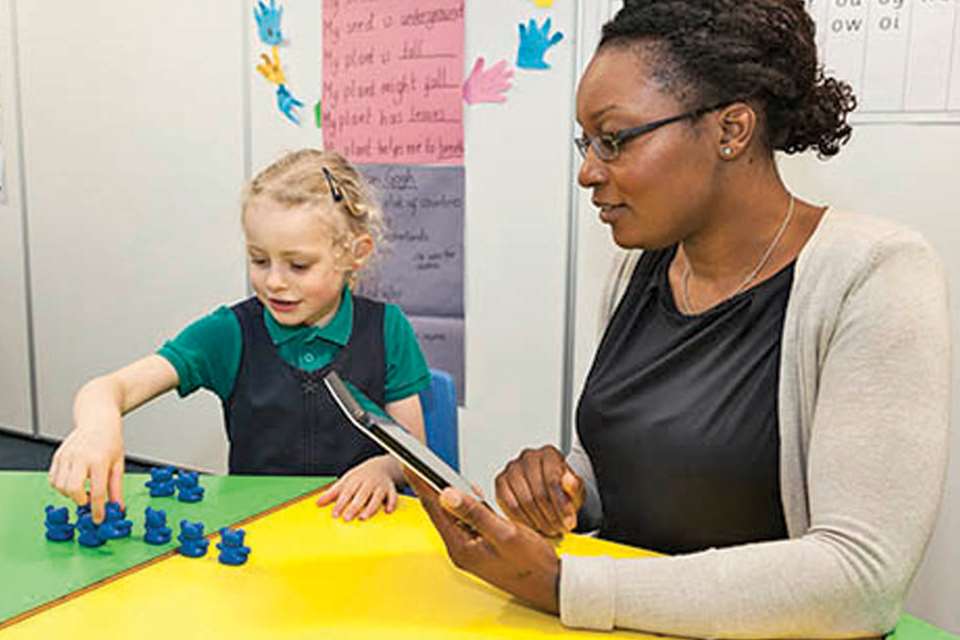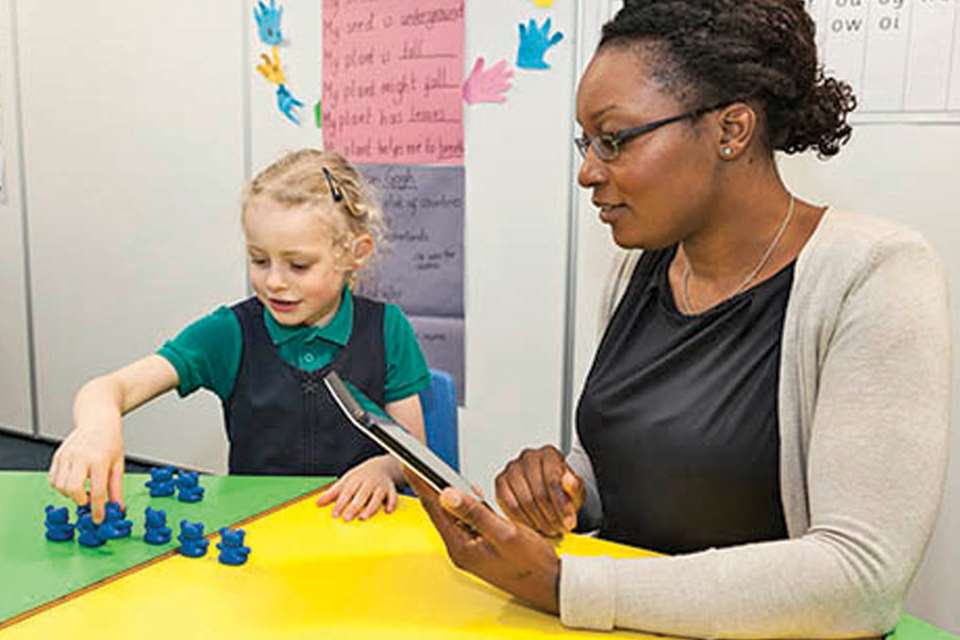Reception baseline providers slam unions' report
Friday, February 12, 2016
The providers of the Reception baseline assessment have hit back at a report commissioned by two teaching unions, which claims that the baseline is inaccurate and potentially damaging to children.

Research published today by UCL institute of Education (Friday) for the National Union of Teachers and the Association of Teachers and Lecturers is hugely critical of the baseline and calls for the Government to withdraw it.
Although not mandatory, just 2,000 of England's 17,000 primary schools chose not to use the baseline when it was introduced in September last year.
Early Excellence, which runs the baseline chosen by the large majority of primary schools, said that the report was part of the unions’ campaign against testing young children.
More than 30,000 practitioners and 12,000 of England’s 17,000 primary schools have used Early Excellence's baseline assessment, EExBA.
Liz Marsden, founder and director of Early Excellence, said she agreed that formal testing was not the right approach for children starting school.
‘There are no tests involved in the Early Excellence approach to baseline assessment. We believe that is why over 70 per cent of schools have chosen to use our model,’ she said.
Ms Marsden added that feedback from schools that had used EExBA had been overwhelmingly positive.
‘Our model is focussed on settling children in and getting to know them through observations and interactions of self-initiated play and small group activities,’ she said.
‘Teachers make observations and use this information to plan next steps in children’s learning and to track the progress of children. This approach is already good practice in most schools and is very familiar to education practitioners. The only difference with baseline is that we are providing a clearer, more precise framework for assessing, recording and using information.
‘We are in the first year and are working closely with schools to make sure there is consistency and accuracy in the way the model is being used and assessments are made.
‘Contrary to claims made by the NUT and ATL, our approach to baseline is not an extra burden, and is equivalent to the normal learning logs and record keeping that most teachers will have.’
She pointed out that the report included ‘many very positive comments about Early Excellence, including that our model fits with the ethos of the schools and that it is reflective of existing baseline assessment methods and is in line with EYFS principles.’
Around 3,000 schools chose the other two baseline assessment providers - the National Foundation for Educational Research (NFER) and the Centre for Evaluation & Monitoring (CEM) at Durham University – and they also defended their Reception baseline assessments.
CEM said it had more than 20 years of experience and research in assessing young children at the start of school, and had worked with thousands of schools in the UK and internationally.
Dr Christine Merrell, director of research, said, ‘Teachers have found the data from our assessments to be reliable and useful in helping them to find out what children know and can do as they enter school, for both planning appropriate learning activities and for gaining an independent measure of progress during that first crucial year of school. We have always advocated that teachers utilise both observation-based assessment and an objective question-based assessment in order to give a holistic understanding of young children, and not simply rely on a single score.
‘The professional judgement of teachers is crucial, however, we need to be cautious about interpreting the results of a single survey. We feel the education profession, as a whole, should look to gather information from many different sources before drawing conclusions about the usefulness of baseline assessment, particularly in the context of the accountability policy.’
The NFER said that it did not consider the unions’ research to accurately reflect the views of the users of the NFER reception baseline assessment.
In a statement it said, ‘As a charity we are absolutely committed to working with schools to develop useful and appropriate products and services that support an excellent education for all children and young people. We have carried out our own customer survey with over 300 NFER RBA users and have seen quite different results from the ones presented in the report. We take considerable pride in the fact that 84 per cent of respondents to our survey of NFER RBA users thought that our task-based approach to assessment was good or very good. ‘
NFER’s survey found that 89 per cent of its baseline users agreed the assessment ensured most children completed tasks appropriate to their level of development.
The Department for Education said that schools were free to decide whether to use the baseline and were able to choose a provider to suit their wider approach to assessment.
A DfE spokesperson said, ‘As part of our mission to deliver educational excellence everywhere, we want to see all children pushed to reach their potential.
‘In order to do that, and to recognise the achievements of schools in the most challenging areas, we want to measure the progress that all pupils make as well as their overall attainment, that means ensuring we have a robust and fair baseline from which to measure that progress.’
The DfE also said that it would be using the information information gathered from the first implementation of the baseline assessment to confirm the best approach for future years.
- For more analysis of the UCL research report see the next issue of Nursery World, out on 22 February.











